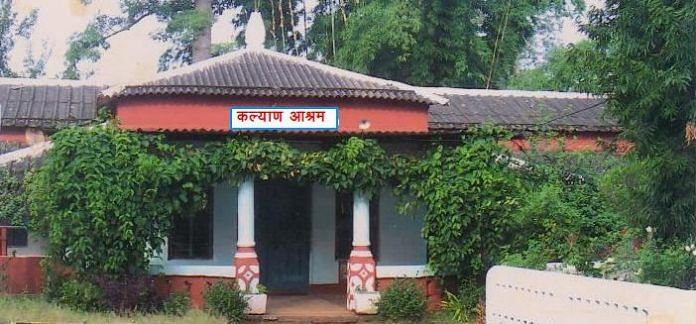New Delhi: India’s largest tribal welfare organisation Akhil Bharatiya Vanvasi Kalyan Ashram (ABVKA) turns 68 today (26 December).
The organisation, backed by the Rashtriya Swayamsevak Sangh (RSS), has been at the forefront of an anti-conversion campaign, which can interestingly trace its roots back to not only the second RSS Sarsanghchalak, M.S. Golwalkar, but also to Congress stalwart Pandit Ravi Shankar Shukla and Gandhian Thakkar Bappa.
It all began immediately after India attained independence.
Pandit Ravi Shankar Shukla, a senior Congress leader and the then Chief Minister of Madhya Pradesh, went on a tour of tribal areas.
He was welcomed at all the places by the local population except in Jashpur (now in Chhattisgarh), an area which had a heavy population of tribals. In Jashpur, Shukla was shown black flags and asked to go back by some protesters.
When he came back and inquired, it turned out that some Christian missionaries, involved in the conversion of tribals to Christianity in the area, had a hand in it.
Concerned over the conversion activities, he consulted Gandhian leader Thakkar Bappa, who had experience of extensively working in the tribal areas. The latter suggested that the chief minister set up a social welfare department, specifically for the backward communities in that area. In 1948, this department was set up and a close associate of Bappa, Pandurang Govind Vanikar, became its first director.
It was quite challenging to work in Jashpur at that time. It was a remote and extremely backward area and on top of that, there was strong resistance from well-entrenched Christian missionaries. Vanikar needed a trusted aide and he asked Ramakant Keshav Deshpande, an RSS swayamsevak (volunteer) to come and join him.
Deshpande was practicing law in Ramtek (in present day Maharashtra). He left his practice and joined the department where he was appointed as the ‘Area Organiser’ for Jashpur region.
Deshpande reached Jashpur in early 1948 and toured the area extensively. Initially the state government had sanctioned a budget for only eight schools but Deshpande not only got the budget for 100 schools but within a year opened them as well.
Gandhian Bappa was so impressed with this that he himself visited some of these schools at the age of 80 in 1949 and gave a special award of Rs 250 to Deshpande.
Also read: Raise IT exemption to Rs 10 lakh, legalise schemes — RSS-linked trade union’s budget demands
The RSS backing
In January 1951, Bappa passed away and Deshpande realised that he wouldn’t be able to do much for tribals within the administrative set up. He had also realised while working in the area that a nationalist social organisation needed to be set up to meet the challenges of conversions and work for all-round development of the tribals.
Deshpande met the second RSS sarsanghchalak Guruji and discussed the issue with him. Guruji drafted an experienced, highly committed and soft spoken RSS pracharak (full-time worker), Moreshwar Haribhau Ketkar, to assist Deshpande. These developments finally culminated in the setting up of the ABVKA, commonly known as Vanvasi Kalyan Ashram, at Jashpur on 26 December, 1952.
Deshpande continued to guide the organisation until he passed away in 1995. The mantle of president was taken over by Jagdev Ram Uraon, a tribal from Uraon village. He had joined the organisation as a teacher in 1968 and worked relentlessly for the organisation as a full timer.
Under Uraon’s leadership, ABVKA made rapid strides and became more vocal in the public discourse. It came out with a detailed vision document on tribals and expanded its outreach across the country. Uraon passed away in July 2020 at the age of 72. Ramchandra Kharadi was appointed as the resident of ABVKA in October 2020. He is the third president of the organisation since its inception.
Largest tribal welfare body
The first project started by the organisation had only 13 tribal children who were enrolled to be educated with hostel facilities.
At present, the organisation runs more than 20,000 projects covering almost every aspect related to the welfare of the tribals. Its work has been expanded to 323 districts of the country. It has a footprint in more than 52,000 villages.
The ABVKA has 14,000 village-level committees and 1,200 full-time workers, 70 per cent of whom are tribals. The full-time workers also include 300 women.
During Covid-19, the organisation was on the forefront of providing relief in tribal areas. According to an official communiqué of the organisation, its 9,000 volunteers reached out to 38,000 tribal families in 1,900 villages across 21 states and Union Territories including Andaman and Nicobar Islands covering 101 scheduled tribes.
In addition to providing sanitisers, masks and dry rations among others, it also helped the tribal workers and students stuck in other cities to get back to their homes. It ran 421 centres where tribal women made more than 33,000 masks.
The writer is research director with Vichar Vinimay Kendra and has authored two books on RSS.
Also read: M.G. Vaidya — the RSS ideologue and Sanskrit scholar who worked with all its six chiefs




This is SEWA.